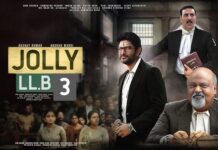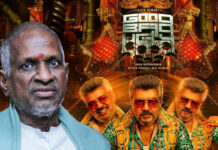Fox Star Studios and Dharma Productions’ Ae Dil Hai Mushkil (UA) is a story of love and friendship.
Ayan Sengar (Ranbir Kapoor) is studying Business Management and is also a singer. He lives in London and is the son of a wealthy father. Alizeh (Anushka Sharma), a very rich girl, also lives in London and is a happy-go-lucky girl, very modern in her thinking. Both, Ayan and Alizeh, are in relationships. Ayan has a girlfriend, Lisa (Lisa Haydon), while Alizeh has a boyfriend, Dr. Faisal (Imran Abbas).
Ayan and Alizeh meet at a bar one day, quite accidentally, and hit it off. Even as Ayan finds himself being attracted towards Alizeh, he and Lisa have a breakup when he catches Lisa in a compromising position with Dr. Faisal. Obviously, Alizeh, who is also there, walks out on Dr. Faisal.
Soon, Ayan is smitten by Alizeh and realises that he loves her. But Alizeh’s ex-boyfriend, Ali (Fawad Khan), enters her life once again. Alizeh meets Ali, who is a disc jockey, at a discotheque. Much to Ayan’s surprise and shock, Alizeh is willing to give Ali a second chance despite the fact that he had ditched her. Ayan tries to dissuade Alizeh for his own selfish reasons but Alizeh finally decides to marry Ali against her own family’s wishes. Why, she even invites Ayan to her marriage because she loves him dearly as a friend.
Unable to handle the fact that his beloved would henceforth be somebody else’s wife, an emotional Ayan leaves the wedding midway. At the airport while waiting for his flight, Ayan strikes up a friendship with Saba (Aishwarya Rai Bachchan) who is a shaiyara by profession. Saba is a divorcee but shares cordial relations with her artist-husband, Tahir (Shah Rukh Khan in a guest appearance). Ayan and Saba meet after some days in Vienna. By the by, Saba starts falling in love with Ayan when they live in together for a short while in Vienna.
Here, Ayan and Alizeh connect once again with each other. While Ayan has still not been able to get over his love for Alizeh, she still misses his friendship a great deal. Alizeh pays Ayan a visit at Saba’s house in Vienna. That is where Saba realises that Ayan would never love her the way he loved Alizeh. Obviously, Saba then has a breakup with Ayan.
What happens thereafter? Does Ayan re-enter Alizeh’s life? Do Alizeh and Ali live happily ever after? Or does Alizeh marry Ayan? What prevails over what – Ayan’s love over Alizeh’s friendship, or Alizeh’s friendship over Ayan’s unrequited love?
Karan Johar’s story is very today, very city and very novel. For one, it talks so easily and so matter-of-factly about love affairs, live-in relationships, breakups, patch-ups, divorces, cordiality after separation/divorce/breakup and the like that it will immediately find a connect with the youth of today. This, also because the attitude of and the language used by the characters are very young. That every character has had a breakup/divorce is too much of a coincidence but the youngsters may not find that as an irritant because that’s the way of life they all believe in. Yes, the older generation and the traditional audience (people who reside in smaller towns) may have a problem in that but the youth audience, the city audience and the multiplex-frequenting audience will love the novelty of the story. Karan Johar’s screenplay deserves distinction marks because it is beautifully written, with a lot of thought having gone into it. For one, the characterisations are splendid. Secondly, the pace of the screenplay is fast. The first half has plenty of light moments which, of course, cater mainly to the youth and city audience. The post-interval portion becomes serious but it does have its share of light moments too. The last couple of reels are emotional and may draw tears from the eyes of the audiences. The track of Bollywood songs and typical Bollywood scenes has been intelligently woven into the screenplay and used so effectively that you can’t help but marvel at Karan’s brilliance.
Dialogues, written by Niranjan Iyengar and Karan Johar, are extraordinary. They are so weighty and not just when they are philosophical but also when they are casual. The dialogue writers deserve kudos for their inspired writing.
Ranbir Kapoor proves with this difficult role that there is no actor among the youngsters who is as natural, real and effortless as him. He shines in the role of Ayan Sengar and makes himself so endearing to the audiences that they root for him all through. He is equally outstanding in romantic, comic, emotional and dramatic scenes. Indeed, an award-winning performance by Ranbir. Anushka Sharma is splendid. Her remarkable performance stuns one and all, making her a strong contender for the best actress awards this year. She, too, is so natural that one doesn’t even feel as if she is acting. She expresses herself wonderfully when she explains to Ayan that her love is the one between friends, not lovers. The chemistry between Ranbir and Anushka is outstanding. Aishwarya Rai Bachchan is superb in a supporting role. She looks bewitching and her acting has a lot of style and sophistication. Fawad Khan stands out in a special appearance as DJ Ali. To say that he looks like a million bucks would be stating the obvious. Lisa Haydon stands her own opposite actors like Ranbir Kapoor and Anushka Sharma and that’s saying a lot. Her performance definitely deserves praise. Imran Abbas is good as Dr. Faisal. Shah Rukh Khan is at his charming best in a guest appearance and he says his dialogues with so much feeling that one is forced to salute him. Alia Bhatt lends star value in a tiny special appearance.
Karan Johar deserves a huge pat on his back for his direction. He has handled the subject with complete sensitivity and sincerity and even though the film’s characters have a very modern value system (live-in relationships, pre- and extra-marital sex etc.), that does not repulse even the orthodox audience because of his efficient handling. Karan has extracted great performances from out of his actors. Music (Pritam) is a major asset of the film. ‘Bulleya’ and the title song are already huge hits. The ‘Breakup’, song is very entertaining and tuneful. ‘Channa mereya’ is melodious while ‘Cutie pie’ is light and interesting. Amitabh Bhattacharya’s lyrics are just too lovely. Tushar Kalia’s choreography is very appropriate and goes well with the drama. Pritam’s background music deserves distinction marks. It greatly heightens the dramatic impact of the scenes. Anil Mehta’s cinematography is splendid. The foreign locations and the actors have all been captured beautifully by Mehta in his camera. Amrita Mahal Nakai’s production designing is superb. Manik Dawar’s editing is razor-sharp. Production values are grand.
On the whole, Ae Dil Hai Mushkil is a box-office winner. It is entertaining and will be loved by the youth, city audience and multiplex audience. It may not find favour with the single-screen cinema audience and the audience in smaller centres, but the target audience of the film is sizeable enough to ensure that decent profits accrue to all those associated with the film. Business Overseas will be excellent. It must also be mentioned here that around 80% of the investment of Rs. 92 crore (including cost of production, promotion and release) has already been recovered from non-theatrical sources. Recovery of the balance 20% of the investment and earning of handsome profits from India and Overseas theatrical business is, therefore, a left-hand task for the film.




























